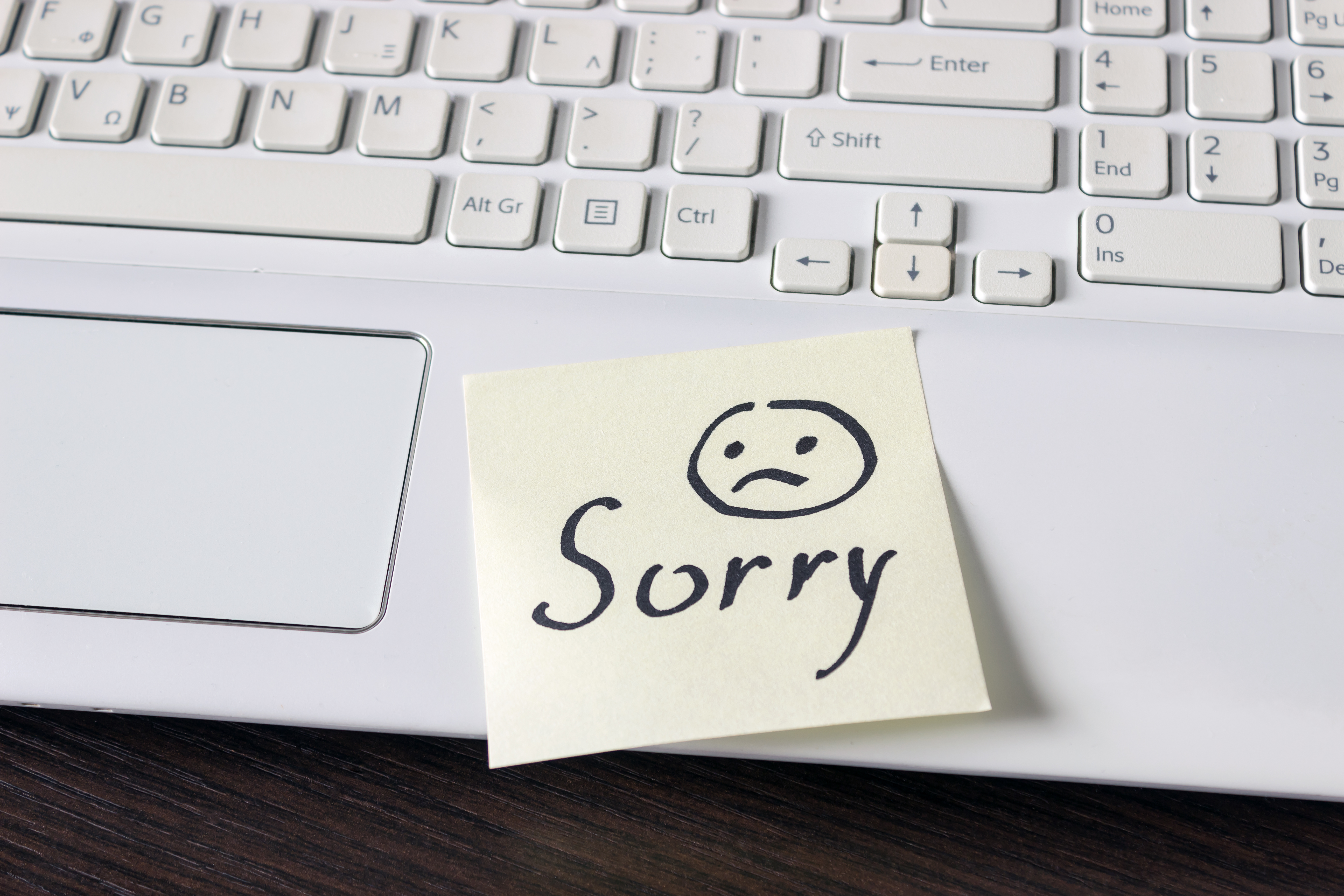We have all apologized at some point in our lives. We are taught from a very young age that when you do or say something wrong, you apologize.
Period.
But what if you didn’t do anything wrong? What if you are just being yourself? Sometimes we apologize too easily for things that do not need an apology or explanation, and many times we do this unconsciously without even realizing it — but it doesn’t have to be that way.
Why We Over-Apologize
When I started running my own business, I found myself apologizing and over explaining so much I felt like I needed a t-shirt that said “sorry” on it. I would apologize for needing further clarification, for the choices I made, for just existing at times.
I know I’m not the only one, I can imagine you might be reading this and nodding your head right now.
Let’s start with a few possible reasons you might be apologizing or explaining too much:
You feel insecure
Have you ever explained why you weren’t wearing makeup? Or apologized to a fitness instructor for not getting the move right? Apologizing and explaining go hand in hand with feeling insecure and not comfortable in your environment or in your own skin. It’s hard to feel secure when you’re uncomfortable.
People pleasing
It is impossible to make everyone happy and it’s not realistic to get along with everyone. Yet, some of us are always striving to please everyone, whether it is our boss, a friend, or our partner. Our default is to believe that we are to blame, even we are not at fault, or no one is at fault. This stems from a fear of disappointment and rejection.
Low self esteem
When we apologize too often, we often send signals that we don’t feel worthy of being in the meeting or conversation. Even on social media, we can feel like an imposter if we have less followers than someone or a different quality of photos or content. We may apologize just simply for being in the space.
How to Live a More Authentic Life
The good news is: you can change this narrative in order to live a more authentic life. While this does not come easy, working with a therapist can help find your apology triggers.
When we focus on pleasing others and the fear of isolation and rejection, we are not living our lives authentically and the way we really want to. This can impact our mental health in many ways. When we come from a place of fear we open ourselves up to anxiety and feelings of inadequacy. It does not feel good to constantly try to please everyone, and as an end result we end up disappointing ourselves the most.
The bottom line is we all have different priorities.
We shouldn’t be made to feel bad about prioritizing certain things over others. Your life is your own. Life is not “one size fits all.” If you feel good about your choices, then you should do what makes you happy. Sometimes people will not understand, and that’s OK. We are conditioned to explain ourselves more with the continued use of social media and technology. Our lives are out there for the world to see. We are opening up ourselves to judgement and scrutiny.
But how do we break the cycle? Here are a few things to consider before you apologize:
Take a breath & a step back
Before you apologize, take a deep breath and a pause. Do you really need to apologize? Is your “mistake” hurting someone? Is it causing someone discomfort? Or, instead, are you simply falling back on an apology to avoid causing discomfort. Taking a step back to assess before apologizing will give you clarity if the apology or explanation is actually warranted.
Recognize your hot buttons
We all have different triggers that set us off and cause us to act or react. Some of us react by shutting down and apologizing. When we recognize what those things are, we can learn from self awareness and think about how to react differently going forward.
Think about your words
We can have a tendency to apologize for needing further clarification or when asking a question. Instead of leading with an apology, try simply just asking the question. You are not the first person to ask a question, even an obvious one, and you won’t be the last. It is OK to want more details or ensure you understand.
Unfortunately for many of us, apologizing has become a habit, and it can be tough to break. That being said, it’s something that requires practice. If it helps to journal or write down your triggers or feelings and revisit those thoughts that spurred your unnecessary apology, do it. And keep at it. You won’t immediately stop apologizing overnight, but the more self aware you are about what causes you to over apologize, the better you will get at recognizing the behavior, and correcting it!
Originally published on Talkspace.
Follow us here and subscribe here for all the latest news on how you can keep Thriving.
Stay up to date or catch-up on all our podcasts with Arianna Huffington here.


